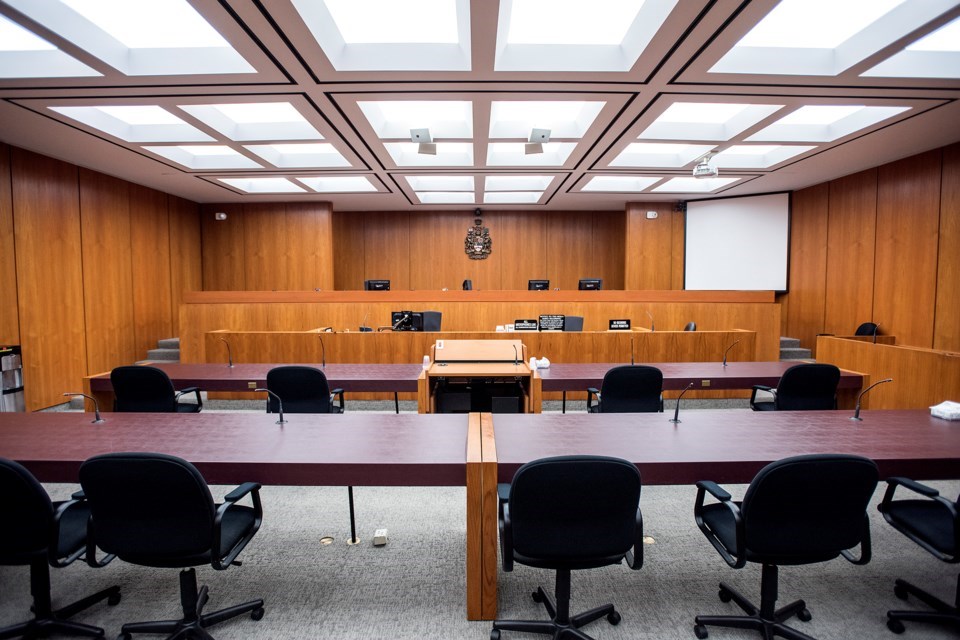The trial of a Canadian soldier accused of trying to kill her children by setting fire to her CFB Edmonton home continued last week, where the Crown and defense made their final arguments before Justice John Little.
The trial began on Feb. 7, where Crown prosecutor Dallas Sopko said the fire was the final act in a bitter custody battle. The woman, who cannot be identified under a publication ban to protect the identities of the children, faces two counts of arson and three counts of attempted murder related to the 2015 fire.
The 10-day trial wrapped up last Friday with closing arguments. The judge has heard testimony from several witnesses over the course of the trial, including the woman’s children, and the recipient of a note from the accused.
Defence lawyer Curtis Steeves argued his client had nothing to do with the fire, stating that there were “too many gaps” in the evidence.
Steeves also asserted that the evidence presented during the children’s testimony had changed over time. “The court should be extremely skeptical, extremely critical regarding that,” he argued.
Sopko cited the divorce and subsequent custody battle as the motive for the accused, while arguing that for the children to start the fire would “defy logic.”
The prosecution also argued that one child was relying on the other to reconstruct aspects of the night of the fire, which explained the discrepancies in their testimony.
“Both testified with certainty that they did not set the fire and did not see who did, both testified with certainty they did not take down the alarms or see who did, both testified with certainty they did not see anyone else inside the home that day,” Sopko argued.
Sopko further explained that multiple elements of the children’s testimony were corroborated by Robert White, who received the letter used in evidence throughout the trial from the accused.
The Crown reasoned that the person who set the fire would need a source, and the presence of accelerants at the scene, including fire paste and lamp oil, required foresight.
“The conclusion supported by the evidence is [that] the only person who could have set the fire is the accused,” Sopko concluded.
The prosecution said the woman’s account of the events are simply “not believable,” and that she was “deflecting responsibility to her children.”
On Wednesday the accused took the stand to testify that she did not start the fire, was not suicidal, and wrote the note used as evidence in the case after the fire, not before, as reported by the Edmonton Journal.
The prosecution said the woman took her kids on one last dream trip to West Edmonton Mall, wrote a suicide note, then set fire to their home in an attempt to kill them all.
The Edmonton Journal reported that the woman acknowledged she had likely written the letter, but noted the handwriting was unusual, which she attributed in part to carbon monoxide poisoning. She testified she was hospitalized after the fire and experienced hallucinations, believing at one point that the walls were “breathing.”
During cross examination, Sopko noted the woman told military police she didn’t have much money, but apparently had $20,000 cash hidden around her house and car.
As reported by the Edmonton Journal, Sopko also took issue with the woman’s claims she had found her sons in the basement—she claimed she did not pay much attention when they told her there was a fire, as they had a habit of sleepwalking.
The accused pleaded not guilty to the charges at the start of the trial.
A verdict in the case is expected on Friday.



